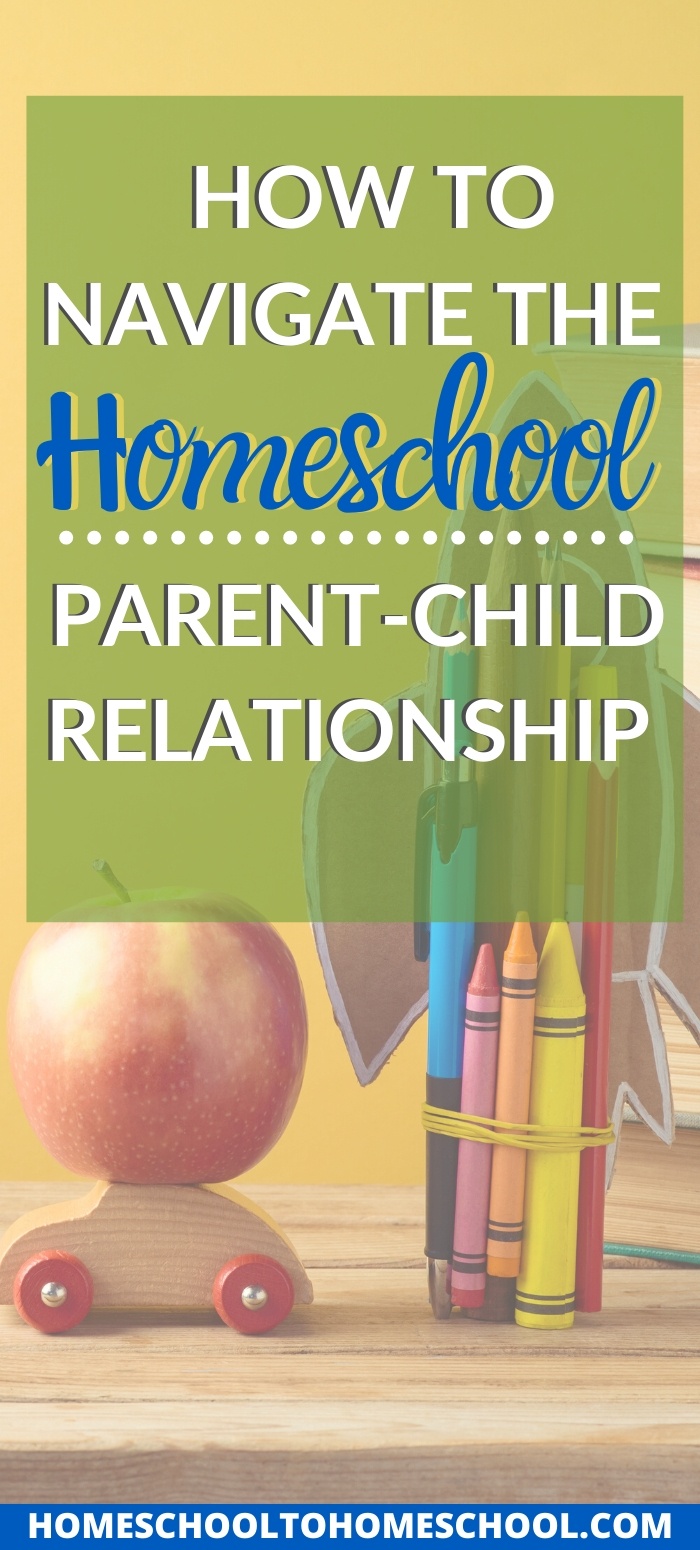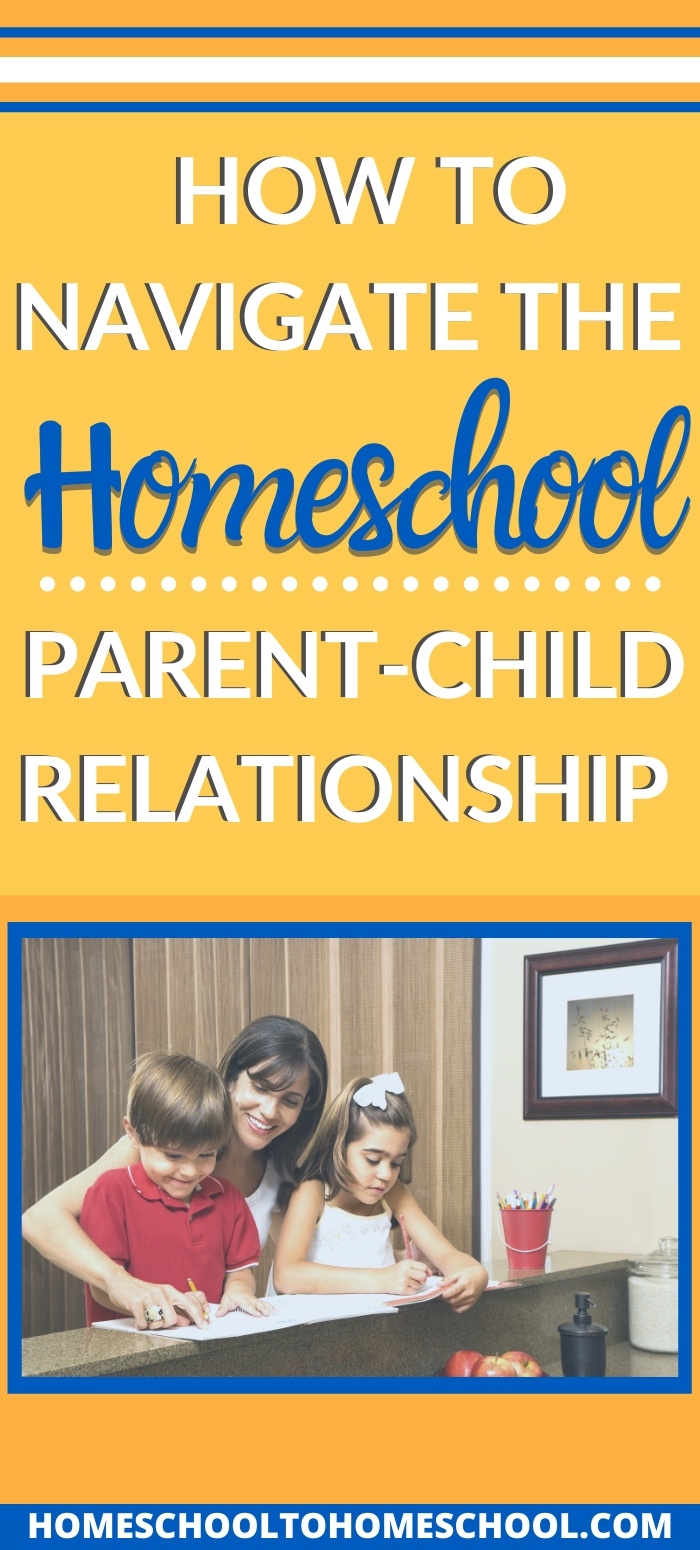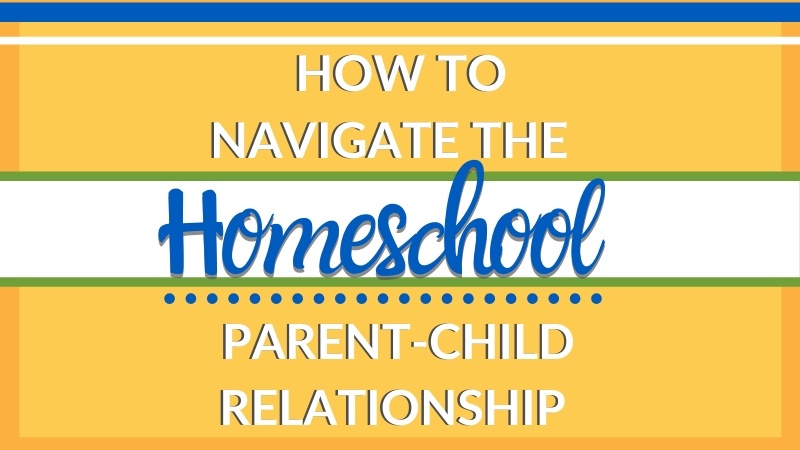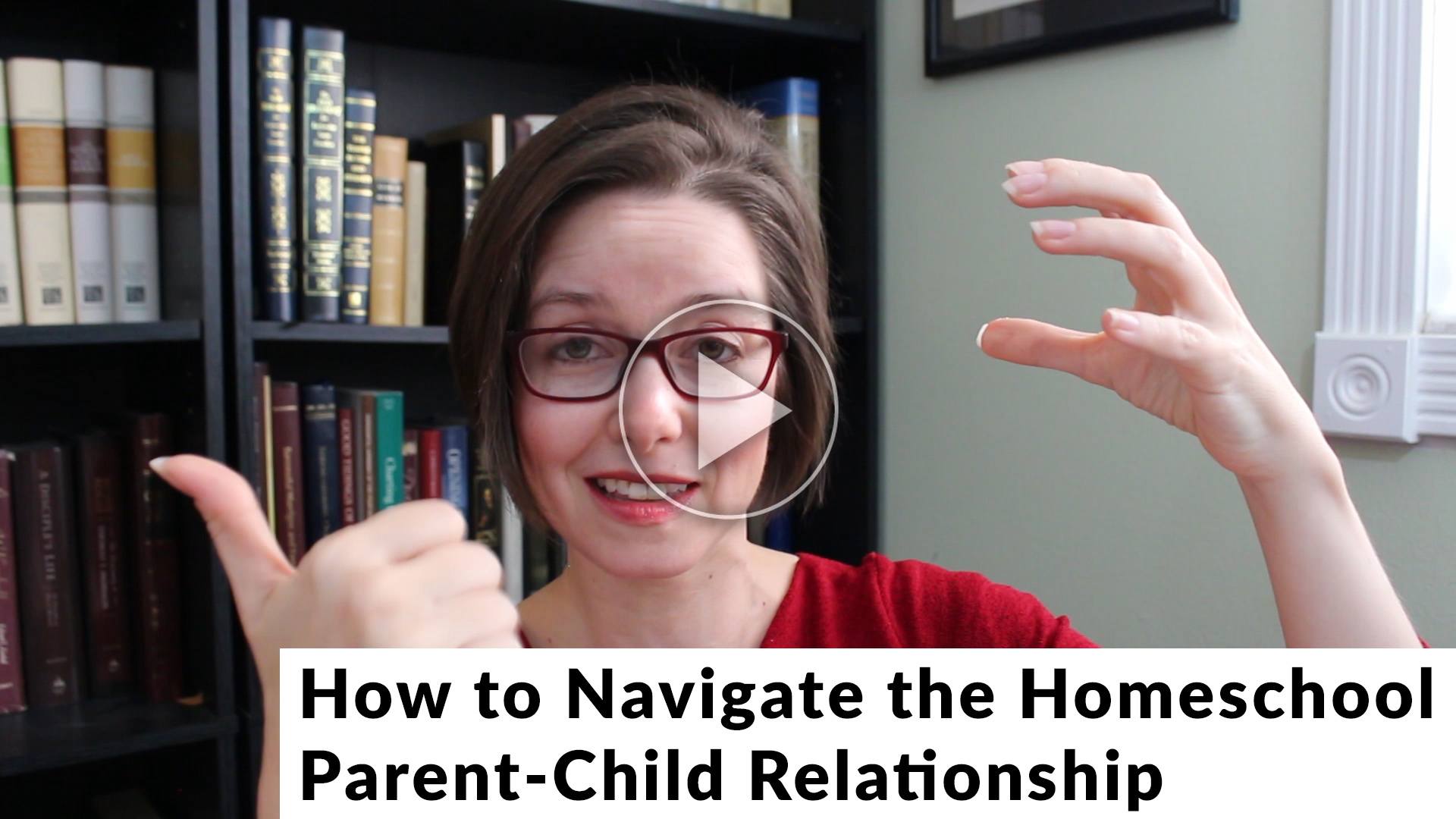When I started homeschooling, I spent hours researching and learning about curriculum and teaching methods.
What I didn’t realize is that the most important thing I was going to have to learn about was how my homeschool parent-child relationship was going to work.
I thought homeschooling was about books, and lessons, and knowledge. And it is.
But it’s even more about how two human beings -- a parent and a child -- are going to work together to accomplish a common goal.
And homeschooling can be tricky because you’re not just the teacher -- you’re also the mom. And that means you aren’t just teaching subjects, you’re also parenting and disciplining.
But how do you do that while you’re homeschooling? How do you decide when to parent and when to “teacher”?
How do you motivate your kid to learn (a HUGE part of homeschooling) without destroying your relationship (with yelling or bribing or begging)?
It’s all about following 3 principles:
1. Identifying Priorities
2. Setting Clear Expectations
3. Establishing Appropriate Discipline
Let’s dig in and talk about all three.
Want to keep reading instead of watch? Scroll to read a transcript of the video
Learn how to motivate your kids to WANT to learn ... without begging, bribing, or yelling!
Transcript
Hello, my name's ToriAnn Perkey and from my homeschool to your homeschool, today we'll talk a little bit about how you can navigate the parent-child relationship in your homeschool. Particularly if things are not going well. You know sometimes when you think about homeschool, we think a lot about the school part. We think about the fact that we're educating and we're teaching and that our kids need to learn all of this stuff and we're trying to figure all that out.
Parent-Child Relationship
But the reality is homeschool, a huge piece of homeschool is actually this parent-child relationship. How you and the child are getting along and unfortunately sometimes things don't go the way you want them to. And it starts to tank or sour or fall apart and you're thinking, “I am not getting along with this child. We are fighting, we are struggling.” So today I want to talk about how you can navigate this a little bit so that it can be a more positive, pleasant parent child relationship, so that you can get back to doing the school part.
You have a dual role
Now this is complicated. This is complicated because you are not just the mom, you're also the teacher. You are the disciplinarian and you're the detention teacher. You're, you're all the things that the school has as well as everything that the mom has. And one of the benefits of not homeschooling, and I say it like that because it really is true, is that you can, when your kids go away and they have trouble in this world over here and then they come home.
You are then able to commiserate with them. You're able to take their side, you're able to be their ally. But when you are the problem that they see, when you, not that you're the problem, but they see you as the problem, they see you as the frustration. You can't also commiserate. That is, you can't be both. So it is a hard place to sit and it's doable, but it is not easy. So we're going to talk a little bit how we navigate this.
The fact that we have these two roles that we're trying to inhabit at the same time because it does often sour. And one of the reasons it sours is because we are often trying to get our kids to do stuff. We're trying to force them to do things. We're trying to make them want to learn what we want them to want to learn, but we're trying to make them learn.
We're trying to say, okay, do your homework, get your schoolwork done, do this assignment, do the math, do the language, write this sentence, do your handwriting, read this book, whatever it is. That can be really tricky. We're trying to motivate our kids so that they want to learn and it often is where the battle starts to happen.
So if that resonates with you, make sure you stick around to the very end because I have a little something that I want to tell you about I think is going to help that particular piece. But first we're going to talk about some basic principles, how we navigate these two relationships. Okay.
Principle #1 The relationship comes first
So the first one that I want to just, the first principle that I want to share with you is to remember that the relationship always comes first. Always, always, always relationship comes first. And the reason is that if the relationship is not working, school isn't going to happen. It just isn't and so you have to have this piece working first. If this piece is working, you can start to figure out how to figure out this piece. If this isn't working, nothing's happening over there. So always putting the relationship first, even if it means shelving. Some of this, and I've talked about that in other videos, I've talked about that in the past.
Principle #2 Set really clear expectations
Second principle is you want to set really clear expectations so that you and the child don't end up having arguments or frustrations over the fact that you simply didn't understand what the other person thought was going to happen. The reality is, any time anyone is upset, and this is across the board, whether you're talking about homeschool or marriage or family or extended family or neighbors or anything, anytime someone is upset, it's because their expectation didn't align with reality.
There was a disconnect. What they thought was going to happen doesn't align with what actually happens, and that disconnect is where the unhappiness happens. So if you can have clearer expectations, you will have less conflict and less unhappiness. And I just want to give you a really quick example of this.
This last week I had a daughter who we were trying to establish some routines in her life because she's in a place where she just needs to have a few more of those. And we had a conversation at the beginning of the week where she agreed that she was going to do certain things and I was going to do certain things. I was super, super excited. And as I watched the week progress, those things didn't happen. And I found myself getting increasingly frustrated. I was nagging, I was doing all sorts of things that were just not good parent child relationship.
And I'd got to the end of the week and I realized it was because I had not set good expectations. I had not clearly defined what I envisioned was going to happen in that week. And so she was operating under a different set of expectations and the result was the disconnect. So at the end of the week after several, I would say heated and or complicated conversations, she and I sat down. We re-discussed and got really clear on our expectations so that moving forward we can have a different type of experience and I know that it will be better because she and I are now on the same page. Okay.
Principle #3 Have a discipline system in place
Third principle I want to discuss today is that you do, in order to have your parent child relationships working, you do need to have a loving discipline system in place. Because once you've set the expectations, because children are human, there will come a time when they don't meet them. And you need to already have a plan in place for how you're going to handle that. It shouldn't be yelling, it shouldn't be threatening, it shouldn't be doing those things that are reactionary.
You want to be able to be proactive and in order to be able to do that, you have to be able to say, "So if you do not do X, Y will happen." And then be able to unemotionally apply the consequence to the choice. Because when you set clear expectations, you then have choices and if they choose something that doesn't align, then you can unemotionally apply the discipline and then they can learn.
Discipline is about teaching and learning. It is not about punishment.
I don't know where to start
All right, so those are three principles. If you can learn how to do those three things, you will successfully be much closer to navigating this challenging dynamic between parent and child as you're homeschooling. Now, this sounds like a great idea, but you're like, I do not know where to start. I know that what you're saying sounds like it makes sense, but boy, I would love a lot more help.
I want you to check out a course I've created called The Motivation Formula. It's all about how to get your kids to want to learn without begging, yelling or bribing them, and I want you to go check it out because we go into what I've just talked about in so much depth.
We go in, we dive deep talking about this parent child relationship as it relates to homeschool. And people who go through this course, quickly are able to start to apply principles that radically change the dynamic in their home. And the bonus is their kids genuinely start to want to learn because they no longer feel forced. So if that sounds like it's something that would appeal to you.
Please check up, the link will be up above or down below, you know, however it is that you're watching this video. I want to just provide that resource to you. If this is something you want to spend more time with because you know it will radically change your homeschool for the better. My name is ToriAnn Perkey and I make these videos every week so that you can be a successful and confident homeschool mom.
Save for later by pinning to your favorite Pinterest board!




